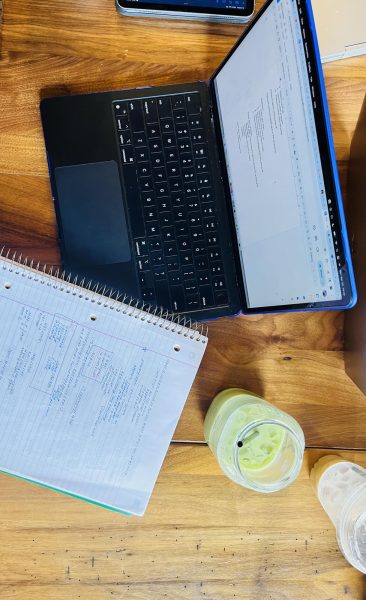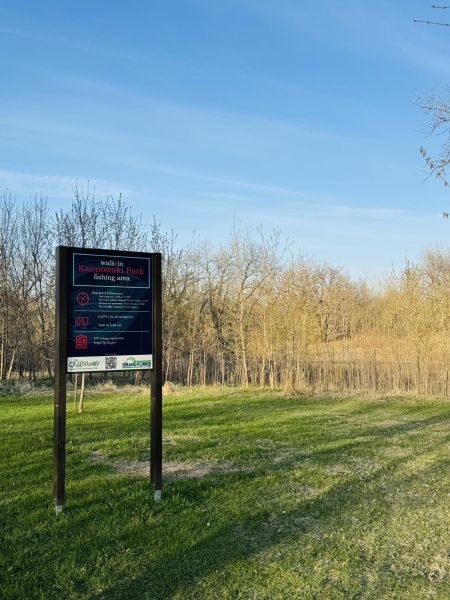With power comes responsibility
December 2, 2016
With the dust beginning to settle from the election results, people are now turning their attention towards what the implications will be, both locally and nationally.
At the state level, Republicans have grown their control of the legislature and retained control of nearly every statewide office. While this sort of control over state politics is nothing new — the GOP has controlled both chambers of the state legislature since 1995 and the governorship since 1992 — a majority of North Dakota voters have clearly trusted Republicans to work to better the state.
There will be plenty to do.
The issues surrounding the Dakota Access Pipeline will need to be resolved, and no easy solution is in sight. Protesters have vowed not to give up, despite an evacuation notice from Governor Dalrymple and worsening weather conditions. The protests have cost the state millions of dollars, people’s lives are in danger and there isn’t much certainty about what the future of the project and protests will look like. None of these things are ideal. While federal action and assistance will be necessary, our state and tribal leaders will need to play an integral role in resolving the issue.
If tax revenue continues to decline, the state will once again need to balance the budget. As last year’s allotment showed, cutting budgets isn’t exactly the most painless thing. UND saw this first hand, where we still see calls to bring back programs that were cut during the budget process. The state will have to find a way to allocate less revenue more efficiently, maintaining investment in areas that important to the future of the state, like infrastructure and education.
The interest from the Legacy fund will be available in June 2017; the fund currently has close to $3.7 billion in it from oil and gas revenues. This money could provide a way to ease some of the difficulties associated with budget cuts, but it shouldn’t be seen as a free license to keep unnecessary spending. After all, even after the last round of allotments, the state’s budget is still much larger than it was pre-oil boom.
More broadly, the state’s economy will likely to continue to struggle if commodity prices remain low. There is no way around it; the way North Dakota’s economy as it exists today is dependent on the price of oil and agricultural commodities.
Median farm income fell to $18,999 in 2015 from $54,666 in the previous year, according to the NDSU extension service. While oil production has only slightly dipped, the economic benefits associated with drilling have gone down considerably as low prices has slowed the development of new wells.
The state’s gross domestic product — a widely used economic measure of the total dollar value of all goods and services produced in a certain time frame — shrank by 2.1 percent over 2015. This is at a time when the rest of the country grew modestly by 2.4 percent. North Dakota, once an island of financial security during the Great Recession, has struggled to find its way as the rest of the country has regained its footing.
While the state is blessed with natural resources, policymakers will need to find a way to diversify the economy if the state is going to have more sustainable growth. This is easier said than done, and it’s not something that people should expect the government to be able to magically accomplish unilaterally. Rather, government should provide an environment in which North Dakotan workers and businesses can flourish.
The state should strive to be a place where people want to live and businesses want to open. The state once again was near the top of the coutnry in terms of hate crimes committed per capita, according to data from the FBI. People in North Dakota can still be discriminated against on the basis of their sexual orientation. While the causes and solutions to these issues are multifaceted and complicated, they certainly warrant serious consideration from our state’s elected officials.
In a few short weeks, the state’s Legislature will convene for the 2017 session; the state is much different place than it was the last time they met. Despite some of the recent trends in North Dakota’s economy, I’m optimistic the state will be able to meet the challenges in front of it.
This will require common sense leadership from our state’s elected officials. Even though Republicans clearly control state government for the time being, there is still room for bipartisan solutions; a good idea is a good idea, regardless of the party that proposes it.
This means getting the fundamentals right – encouraging a good business environment and spending within our means – as well as looking forward to the future, working to build a North Dakota where students want to stay after they graduate and families want to raise their children.
Sean Cleary is a copy editor for The Dakota Student. He can be reached at [email protected]











